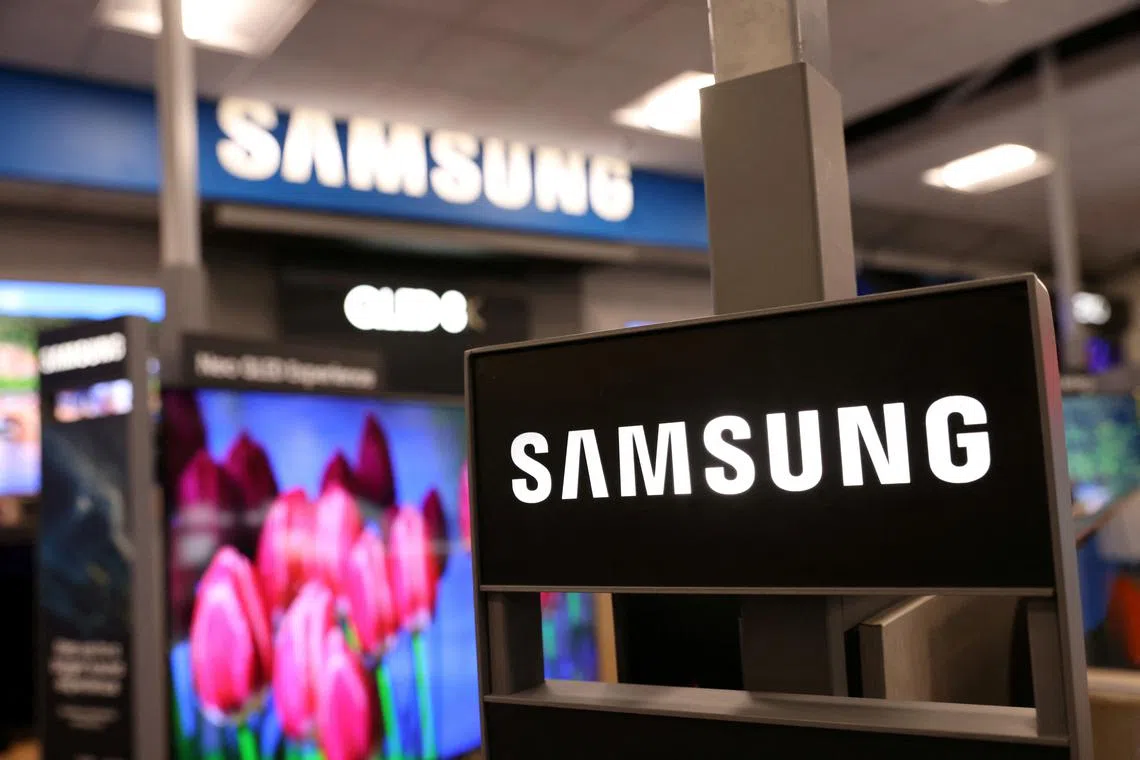Samsung Electronics’ Q4 profit plunges amid global chip slowdown
Sign up now: Get ST's newsletters delivered to your inbox

South Korea’s largest company has been struggling with a historic slump in the price of memory chips.
PHOTO: REUTERS
Follow topic:
SEOUL – Samsung Electronics’ quarterly profit has tumbled, hurt by a sharp drop in demand for semiconductors as consumers spend less on electronic gadgets.
The world’s biggest maker of memory chips and smartphones said persistent macroeconomic uncertainty will make for a tough first half-year, though demand is likely to start recovering in the second half.
Memory chip prices, which fell by double-digit percentages in 2022, are widely expected to decline further in the first quarter as customers continue to hold off purchases and use up existing inventory.
Samsung’s earnings come after grim forecasts from other corners of the technology sector. Intel said it is bracing itself for one of its worst quarters in history, while Microsoft has said it is cutting its workforce by 10,000, even as its profit beat analyst estimates.
Profit at Samsung’s chip segment plunged by more than 90 per cent to 270 billion won (S$287.5 million) in the three months ended December, as customers continued to work through piles of inventories, the company said. Operating income was 4.3 trillion won, missing the average estimate by analysts of 5.8 trillion won.
Net income was a better-than-expected 23.5 trillion won, thanks to a one-time item from a local tax law change.
South Korea’s largest company has been struggling with a historic slump in the price of memory chips
Memory chip prices will likely continue to decline during the first half of 2023, Goldman Sachs analyst Giuni Lee said in a note to investors ahead of Tuesday’s announcement. “We expect the company to be in the red for both Dram and Nand (memory chips) starting in the first quarter of 2023.”
The industry is suffering from a sharp drop in semiconductor demand due to the war in Ukraine, restrictions on chip exports to China,
The world’s largest memory chipmaker, which supplies displays and chips used in Apple’s iPhones, is under pressure to shift gears and lower output and capital expenditure.
United States memory maker Micron Technology has said it will cut spending for new plants and equipment as well as slash output. South Korean chipmaker SK Hynix has also scaled back investments and output, while Japan’s Kioxia Holdings has said it is cutting output by 30 per cent.
Kioxia, which makes Nand chips, is in merger talks with US production partner Western Digital, Bloomberg News reported. BLOOMBERG, REUTERS

